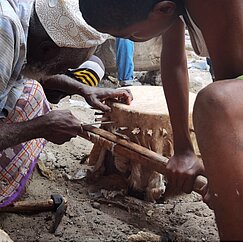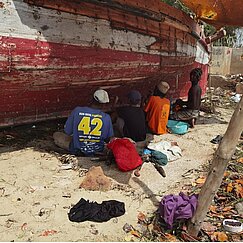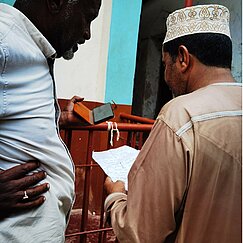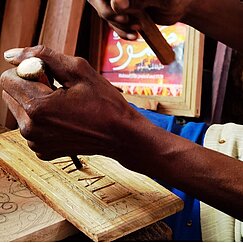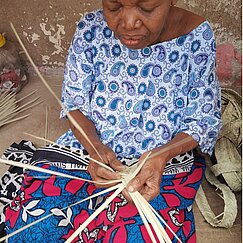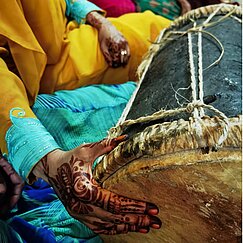Bahari yetu (Our ocean/genre) – A Matrifocal Anthropological Study of Oral Archives and Embodied Knowledge Practices Along the Swahili Coast
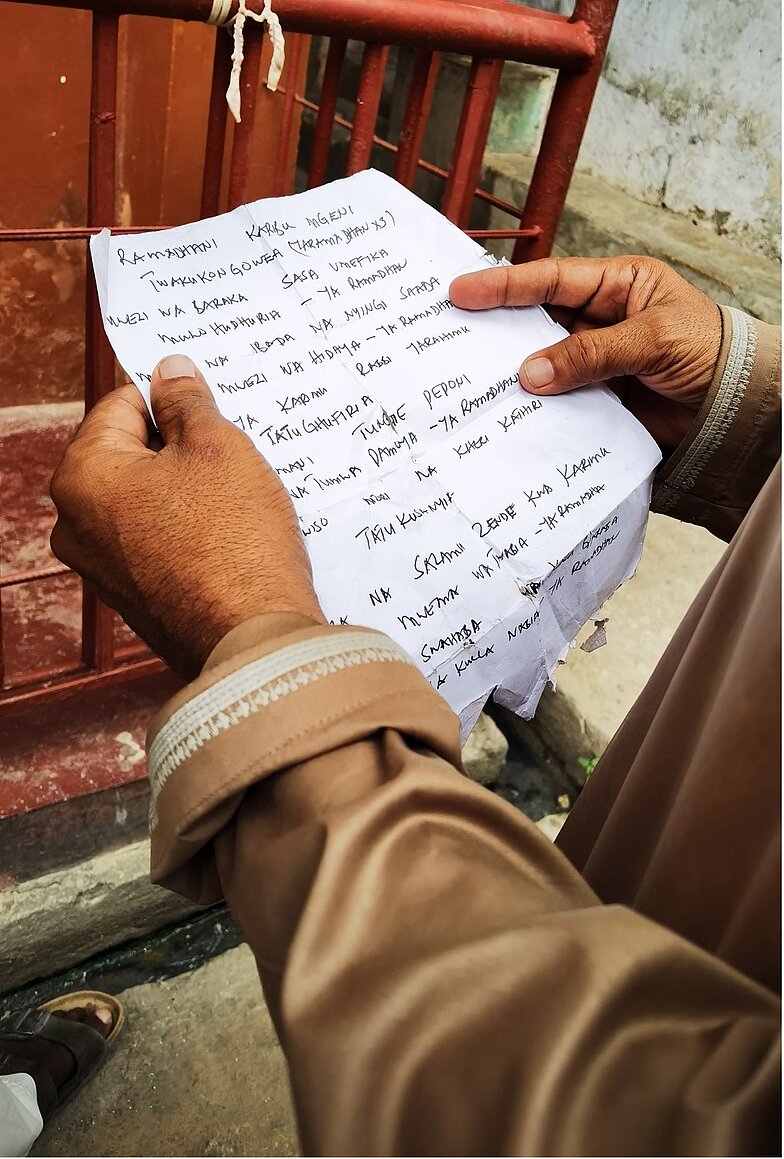
This research project takes as a point of departure the Swahili concept of bahari, which means “genre” and “ocean” at the same time, in order to explore knowledge practices on the Northern Swahili coast through a matrifocal ethnographic lens. The project examines oral art, i.e. music and dance performances, called ngoma, as sites of knowledge. Ngoma performances are not only sites for cultural, political, religious and historical cognition, but are, in the first place, sites of social, ethical, philosophical, linguistic and rhetorical education. In the pursuit of understanding Swahili notions and concepts of knowledge, I propose to unravel how ideas of oral literary genres shed light on the specific ways of becoming, being and moving in this part of the Western Indian Ocean. I will achieve this through an in-depth analysis of the ways in which local experts and specialists, such as healers, teachers, poets, oral art performers and curators collect, preserve, transmit, utilise, produce and perform various oral and textual Swahili knowledge genres (bahari).
As in pre-dominantly oral societies, theoretical and practical knowledge are closely intertwined, this inquiry includes the study of original Swahili occupations such as navigation (land and sea), healing, composing, carving and weaving. Through a matrifocal lens that counters the “patriarchal bias in [the] understanding and interpretation of African data” (Amadiume 2011:152 f.), I direct the overall focus of the project towards female-based cognizance and matriarchal elements in Swahili society – an omission that has so far only been explicitly addressed by Kelly Askew (1999). This also serves to centre female-generated moral and political philosophy, to study Muslim societies as matri- and not patrifocal settings, and to contribute to an active non-Eurocentric recognition of other ways of knowing and perceiving reality (i.e. time, history, space and place).
The research also contributes to an empirically-grounded conceptualisation of knowledge by including local experts and actors as collaborative colleagues in the project evolvement.
